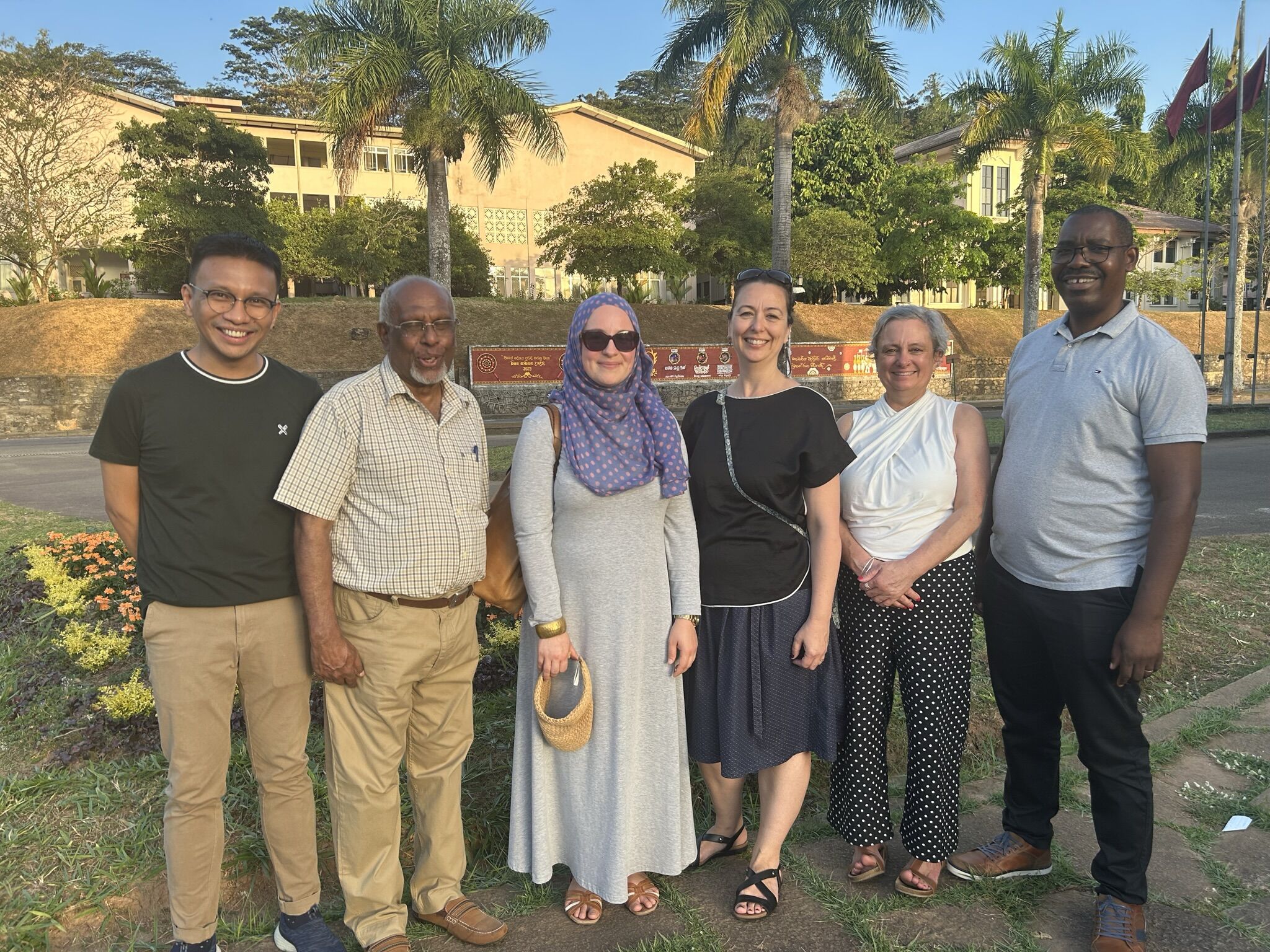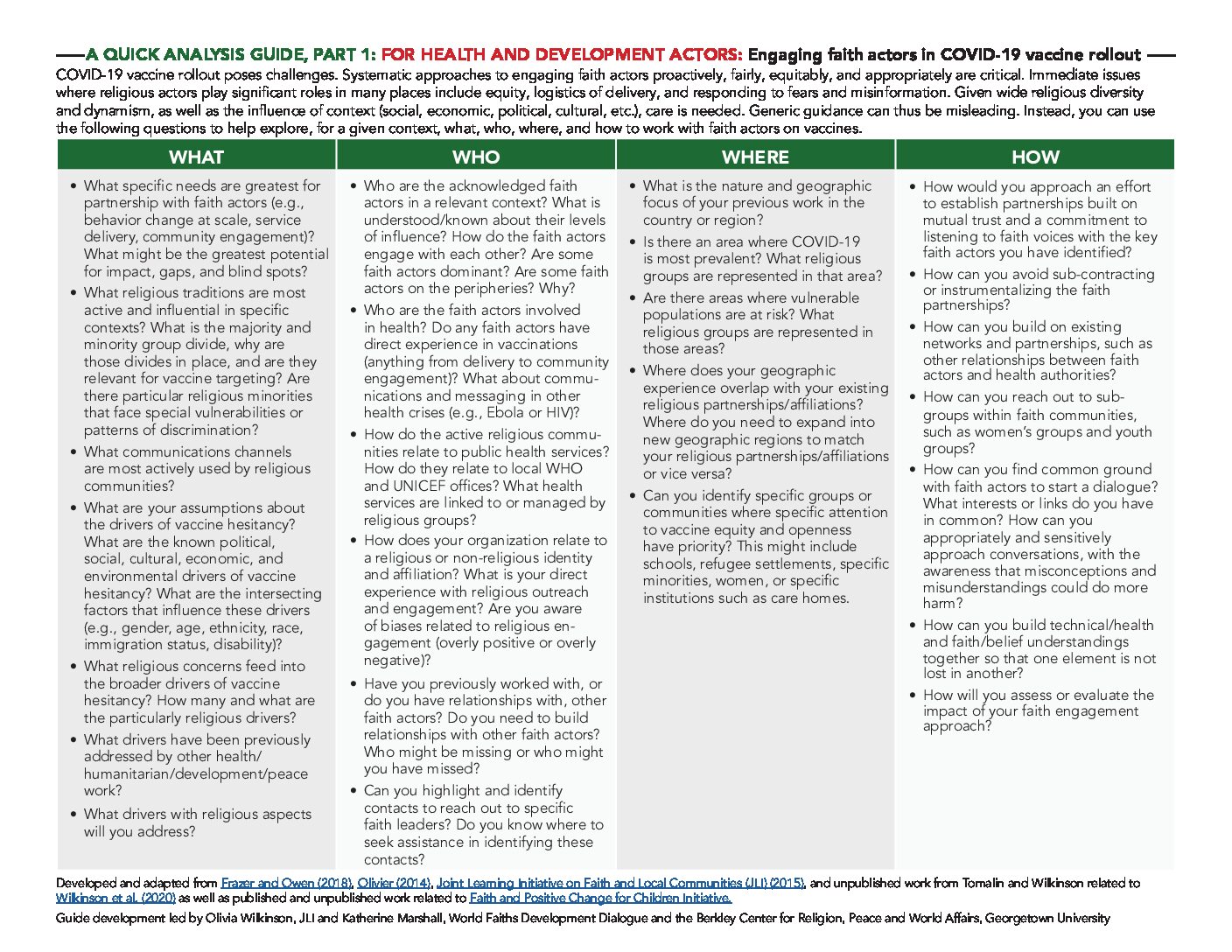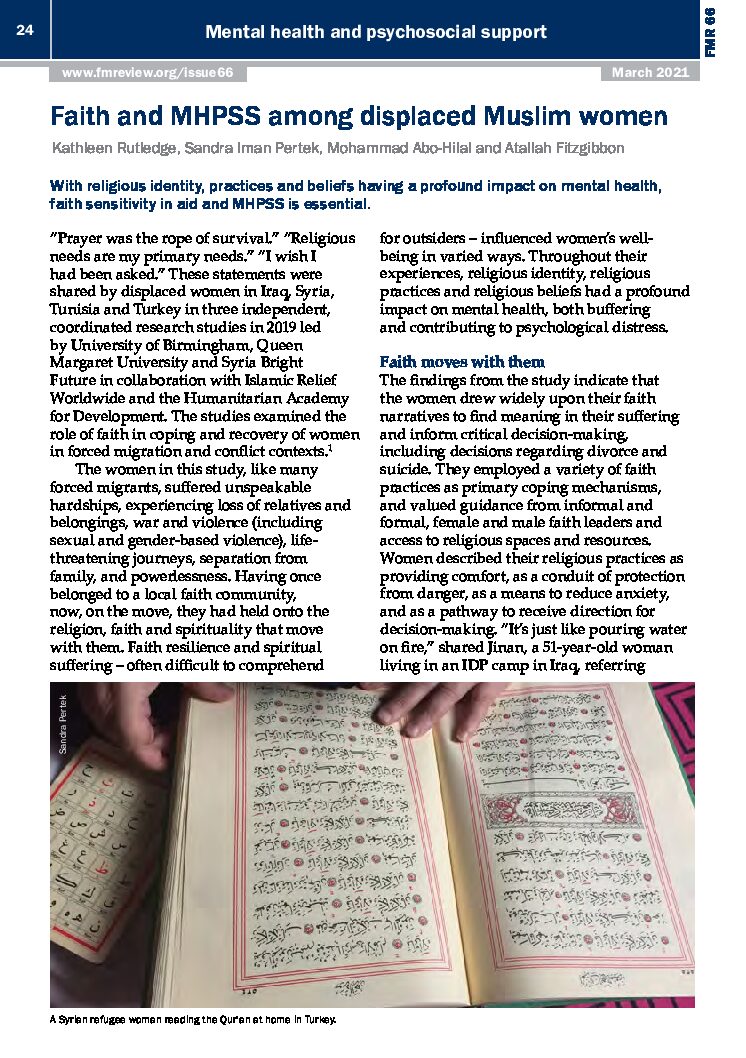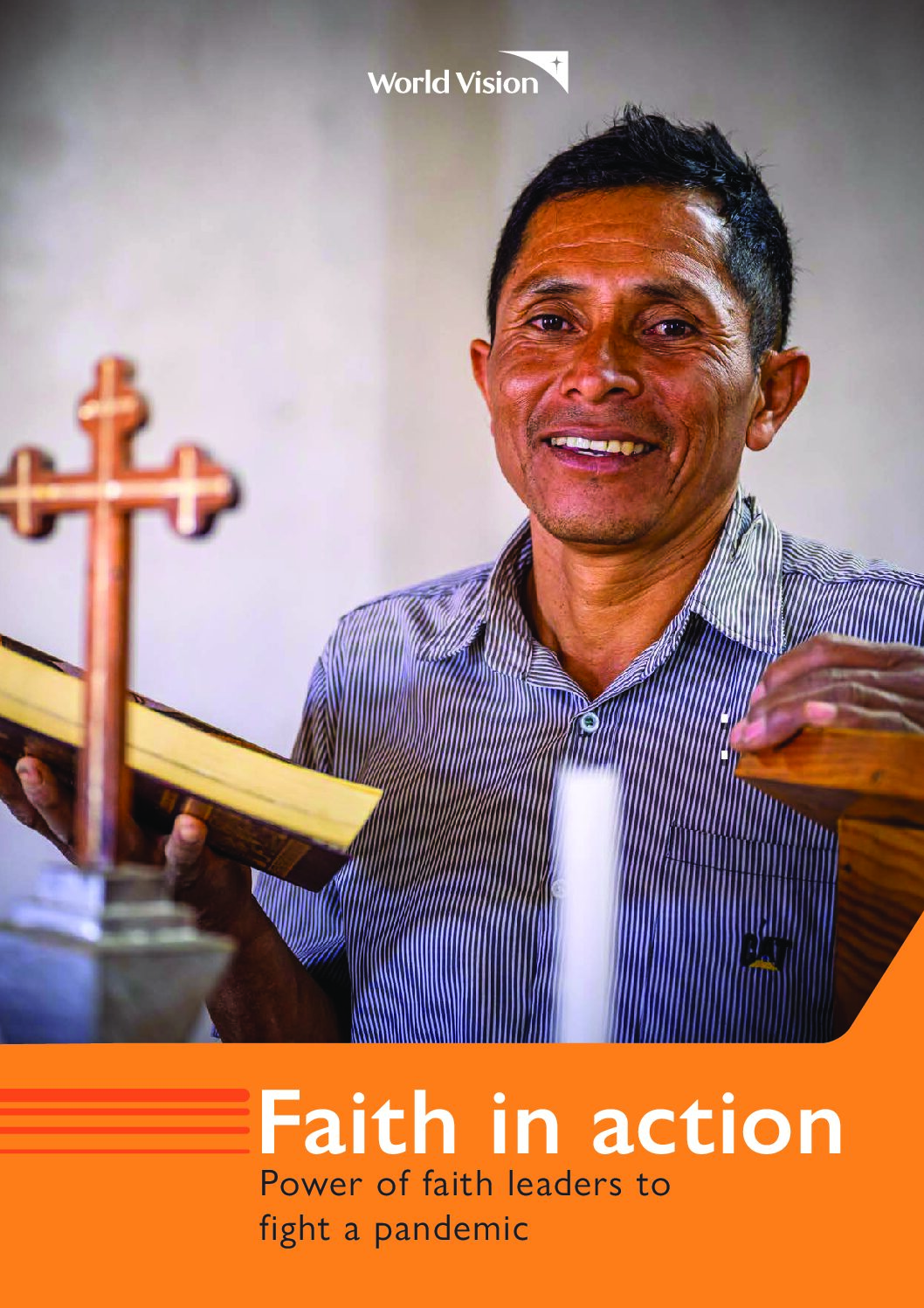Local faith actors and peacebuilding in Africa, Asia and Latin America: Researching ‘tangible’ and ‘intangible’ contributions
Jayeel Cornelio (Ateneo de Manila University), Kalinga Tudor Silva (University of Peradeniya), Jennifer Philippa Eggert (Joint Learning Initiative on Faith and Local Communities), Kathryn Kraft (World Vision), and Emma Tomalin (University of Leeds)

This blog post is part of a series by the Hidden Peacebuilders Network, a global collaboration of researchers, practitioners and faith actors from around the world, who jointly produce and disseminate research on local faith actors and peacebuilding.
The contributions of local faith actors (LFAs) to building community resilience, peace and reconciliation are often marginalised by dominant international peace, development and humanitarian actors. Neither has the role of LFAs in these areas been a strong focus of academic studies, particularly with respect to the ‘intangible’ (or ‘spiritual’) dimensions of their engagement. The Hidden Peacebuilders Network, a global research and practice collaboration of researchers, practitioners and faith actors from around the world, has recently been awarded a British Academy grant to conduct research on Building community resilience, peace and reconciliation as a response to Global (Dis)Order: the ‘tangible’ and ‘intangible’ aspects of local faith actors’ contributions. Research is now under way in Burundi, Sri Lanka and the Philippines. In this blog post, we are providing an overview of the research aims, which will be followed by regular updates from members of the team.
Aims of the project
Implementing participatory action research with researchers, practitioners and LFAs in Sri Lanka, the Philippines and Burundi the aims of our project are:
- To better understand the tangible (or material) and intangible (or spiritual) aspects of the contribution of LFAs to building resilience, peace and reconciliation at the local level.
- To promote broader recognition amongst international peace, development and humanitarian actors of the intangible (or spiritual) aspects of the contribution of LFAs to building resilience, peace and reconciliation through co-producing (with LFAs) a conceptual framework that can inform engagement and partnership between LFAs and other stakeholders.
Challenging western-centric and secular approaches
These aims may sit uncomfortably with many practitioners, policymakers and academics who often approach peace, development and humanitarian action from a secular standpoint. However, we believe that pushing against ‘knowledge frontiers’, as the British Academy scheme that funds our research requires, necessitates accommodating diverse ways of how humans worldwide address global challenges. Our research seeks to advance the emergent scholarship on the links between decolonial and post-secular approaches to peace, development and humanitarian action. Ultimately, our aim is to help build bridges between the capacities of local communities on the one hand and international approaches on the other, in order to mitigate global challenges. At the same time, the research seeks to disrupt dominant framings of the global order as western-centric and secular, elevating alternative conceptualisations and approaches.
Religion as a source of conflict and peace
While the focus of our study is on the contribution of religion and faith actors to building resilience, peace and reconciliation, religious dynamics can also lead to violent conflict. Public discourse often frames religion as a driver of conflict, but there are numerous studies that emphasise that religion can also play a key role in building resilience to violence and in shaping attitudes towards peace. Religion can play this role both in contexts where conflict can be linked to religion and where religion is not clearly related to the conflict at hand. Earlier studies have sought to debunk deeply ingrained assumptions that religion is only a source of intolerance, human rights violations and violence. Instead, research has shown that religion can also be an important factor in working towards “nonviolent conflict transformation, the defense of human rights, integrity in government and reconciliation and stability in divided societies”.
The role of local faith actors (LFAs)
Faith actors working at the national or international level (such as with the government or the UN) are generally better understood by policymakers, researchers, practitioners and other stakeholders outside of religious networks themselves. The roles of LFAs in strengthening the resilience of individuals and communities affected by violent conflict, and in contributing to peacebuilding and reconciliation once a conflict erupts, are often disregarded or misunderstood in these circles. One reason for this is that the faith identity of LFAs is perceived to present a particular risk to humanitarian principles of neutrality and impartiality. This is believed to be more so the case than for faith actors with an international track record who have often adapted to the secular codes of the international humanitarian system. However, while a faith commitment can stand in the way of neutrality and impartiality this is by no means always the case, and we need to also be attuned to the role of secular bias in this dynamic. A focus on the roles of LFAs allows us to appreciate how they are part and parcel of the communities and often the first point of contact when people need guidance, assistance and reporting their grievances.
Tangible and intangible aspects
Another aspect of the secular framing of peace, development and humanitarian action at the international level is a tendency to focus on the tangible (or material) assets that faith actors bring to meeting global goals such as the Sustainable Development Goals (SDGs). Tangible factors include, for instance, resources such as buildings, personnel or networks. The risk here is that the role of intangible (or spiritual) assets is overlooked. Intangible elements include religious belief, prayer, worship, and other rituals. When intangible contributions are not considered, there is a risk that important contributions of LFAs are overlooked. Existing academic literature has mostly focused on tangible factors, a gap we aim to address with this research. While personal and communal spirituality tends to be marginalised in many global peace, development and humanitarian spaces, we hypothesise that they are integral to the contribution that religion and faith identities can make to promoting resilience, building peace, and supporting community cohesion. For many people, LFAs are a primary bridge to the outside world that brings opportunities as well as multiple challenges in this era of hyper globalisation. LFAs often help people to navigate this world materially as well as spiritually.

The core research team in Sri Lanka. From left to right: Prof Jayeel Cornelio, Prof emer. Kalinga Tudor Silva, Dr Jennifer Philippa Eggert, Dr Kathryn Kraft, Prof Emma Tomalin, Dr Theo Mbazumutima




0 Comments